The most effective way to keep bugs out of container gardens is to grow your plants in an insect-proof structure and enforce strict sterilization measures to ensure pests cannot enter the system.
This is usually beyond the abilities of most backyard farmers, much less someone who only wants to grow a few plants on a balcony.
Also, we must consider that many bugs that visit our gardens assist with pollination and, in ideal situations, will actually help to keep harmful bugs in check.
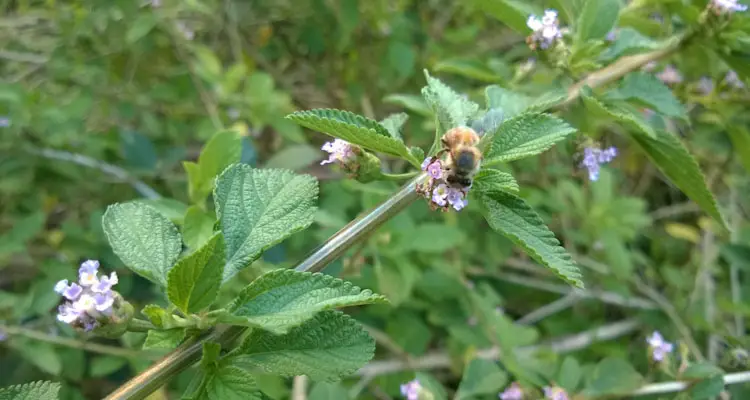
Unfortunately, these ideal situations are seldom permanent, and without a physical barrier, we have to rely on several other measures to protect our plants.
In this article, we will discuss 12 simple ways to keep harmful bugs away while container gardening or, at the very least, to keep their numbers in check to ensure your plants are happy, healthy, and productive. That said, let’s start with the most effective method.
1. Use Physical Barriers To Protect Plants (If Possible)
As mentioned before, physical barriers are the best ways to keep pests away from your plants. These are usually woven materials used to cover rows directly or to create more robust structures like net houses.
These net houses also have the added benefit of creating a more favorable environment for the plants. However, the construction of the support structure can be costly, depending on the size of the area, the cost of materials, and your skill level.
While this is the most effective, it is usually not the most feasible option for someone just starting. Instead, there are other measures we can implement to protect our gardens.
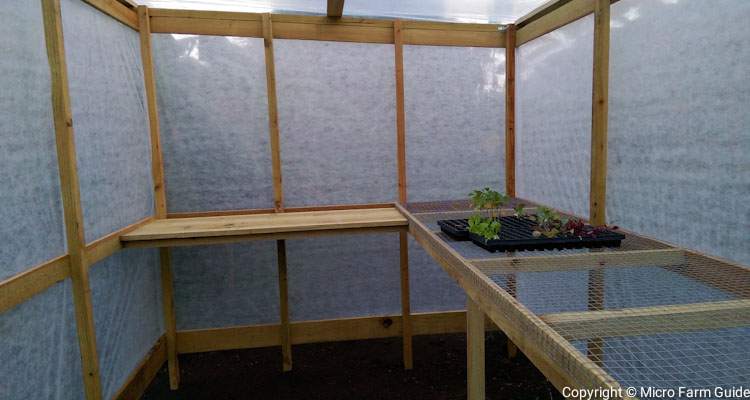
2. Learn About Pest In Your Area
First, you must find out about the common garden pests in your area and the plants they are more likely to attack.
You can get a ton of information online. Yet, it is best to consult local sources such as other gardeners, extension officers, or garden centers.
Most gardeners are eager to share their observations about specific pests, the time of year they are prevalent, and tips on how to get rid of them.
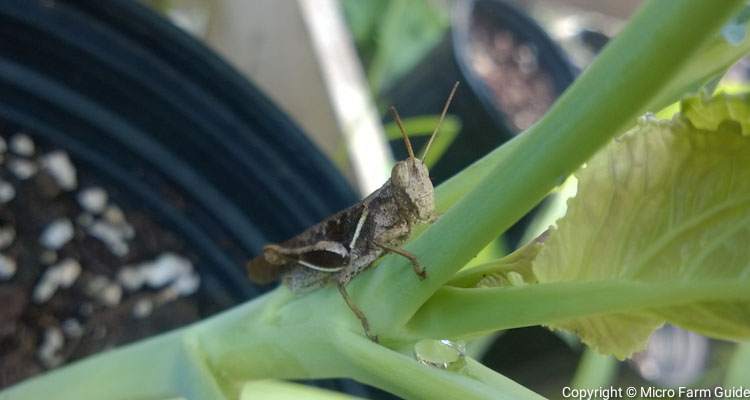
3. Choose Healthy Resistant Varieties
Next, choose plant varieties that are well-suited to grow in your area. This doesn’t mean you can only grow native varieties.
However, we must ensure that the plants will not be too stressed, as this would attract pests, which are opportunistic in nature.
For instance, you should select heat-resistant varieties of plants such as lettuce and cabbages if you intend to grow them during the summer or in tropical climates.
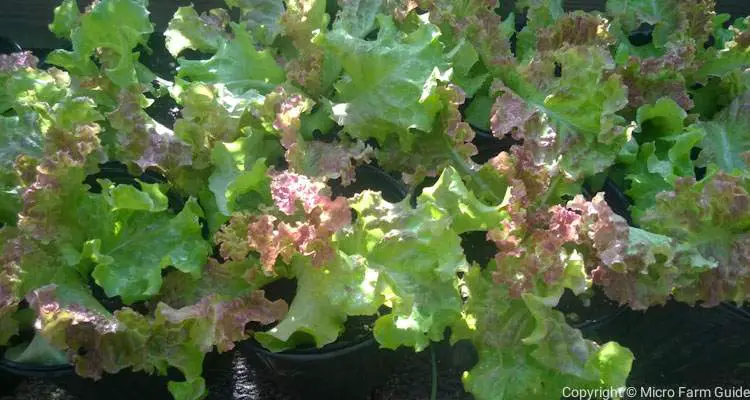
4. Keep Plants Happy And Healthy
Bugs are usually good indicators of the health of your plants. This is evident by the speed at which bugs are attracted to pruned, injured, and stressed plants.
While I disagree with the idea that healthy plants do not attract any insects, I have observed that they tend to be less affected by pests.
As a result, it is best to ensure that you water your plants and provide them with the nutrients and growing conditions they need.
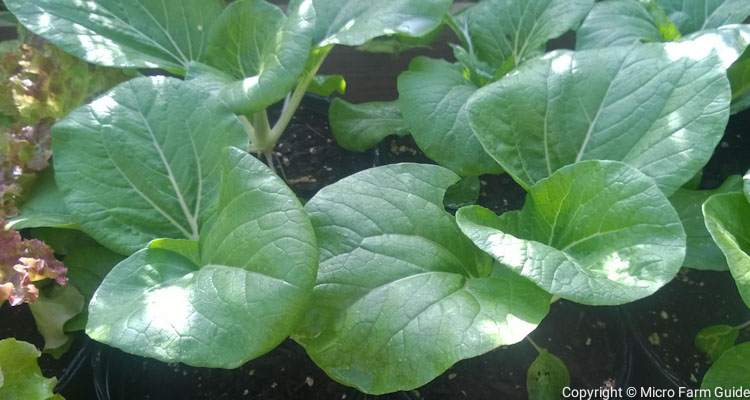
5. Grow A Variety Of Plants
In theory, growing various plants within the same area makes it more challenging for pests to find what they like.
This method relies on the fact that certain pests are attracted to the scent and colors of specific plants, which is challenging to identify when mixed.
You can enhance this masking effect by “interplanting” herbs and other plants with intense aromas between your vegetables. However, avoid growing more than one plant in the same pot if possible.
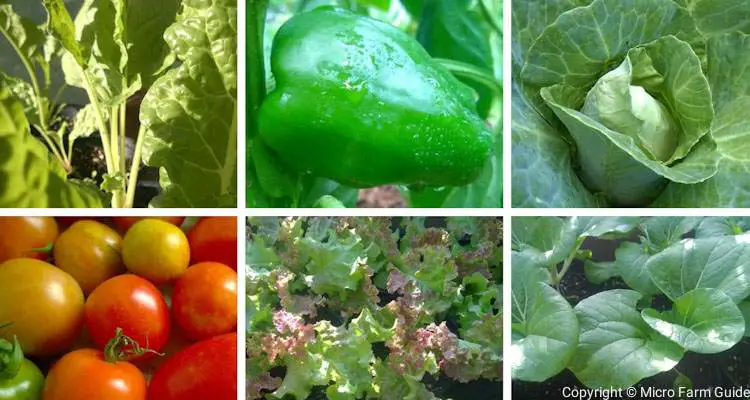
6. Mask The Scent Of Potted Plants
As mentioned above, pests can use the scent of their favorite plants to locate them. In fact, plants tend to emit even more pungent smells when they are attacked or stressed.
As a result, you may wish to mask the scent of vulnerable plants, especially after performing tasks such as pruning or if you accidentally damage a leaf.
Intercropping can assist, but for best results, you should consider spraying your plants at least once weekly with a organic masking agent such as dilute essential oils.
I usually spray my container vegetables with a mixture of 1 tsp Peppermint oil to one gallon of water throughout the garden.
However, I also like experimenting with different oils and ingredients, such as garlic. I encourage you to do the same. You might be amazed by your results.
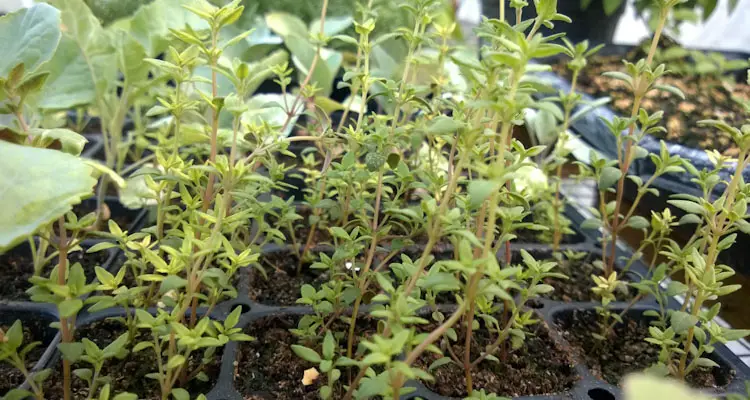
7. Set Insect Repellent, Attractant, And Traps
Instead of just masking the scent, you can use solutions to attract or repel specific insects, such as fruit flies, aphids, and leaf-cutters.
You can use solutions such as Aromatic Insect Attractants, which lure insects to a trap, where they drown in the solution. These traps have been used for years to control fruit flies and other pests.
Alternatively, you can spray plants and their surroundings with dilute solutions made from pepper or fermented rabbit urine. I have not tried rabbit urine yet, but it seems worth a shot.
8. Encourage Pollinators And Other Beneficial Insects
The presence of pollinators, predatory insects, and other beneficial insects can help to balance the ecosystem and minimize the effects of harmful bugs.
For example, pollinators such as ladybirds are attracted to areas where Aphids are present since these “pests” are primary food sources for their larvae.
As a result, you should make your garden as attractive to these helpers as possible. You can do this by planting flowers, installing feeding devices, or creating other favorable habitats for them.
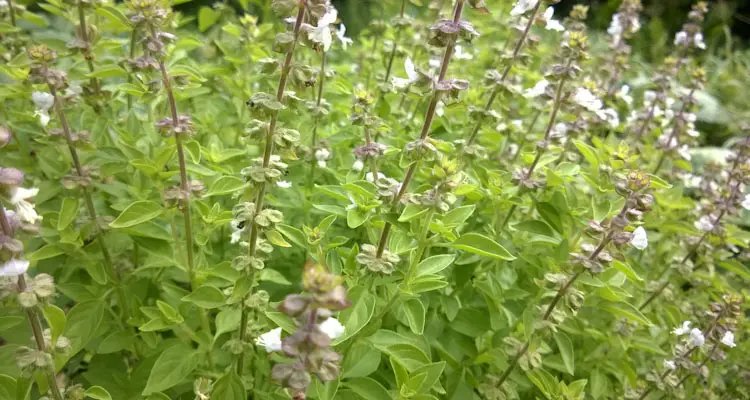
9. Check For Pest Regularly
Regardless of how you control pests in your container garden, you must monitor them daily. You can do this while watering your plants or carrying out maintenance tasks.
Watch for signs of insect damage, such as curling, cuts, or holes in leaves. Look on the underside of leaves and edges of the container for eggs and remove them if present.
Remove larger creatures such as worms or caterpillars by hand and wash off smaller critters using water. Early intervention can prevent a full-blown infestation.
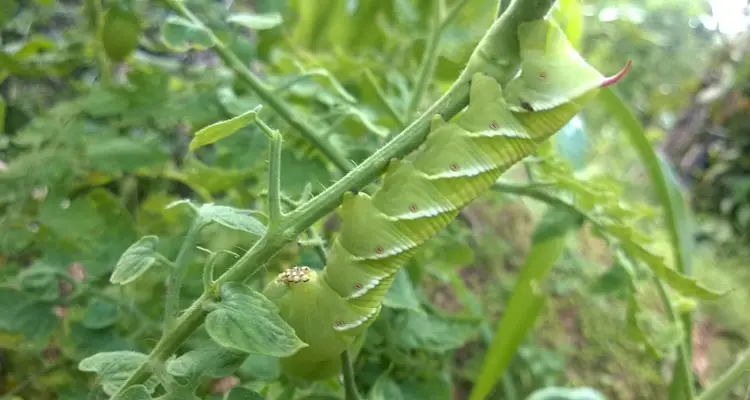
10. Keep Tools And Environment Clean
On that note, we must keep our tools and environment clean. This may sound like common sense to some, but it is often taken for granted.
For example, there have been several reports of net houses becoming infested by pests after gardeners unintentionally carried tiny creatures or their eggs into the structure via tools, gloves, and plant materials from unprotected plots.
As a result, it is essential to wash your hands, clean tools, and possibly change your clothing after dealing with pests in different parts of the garden or property.
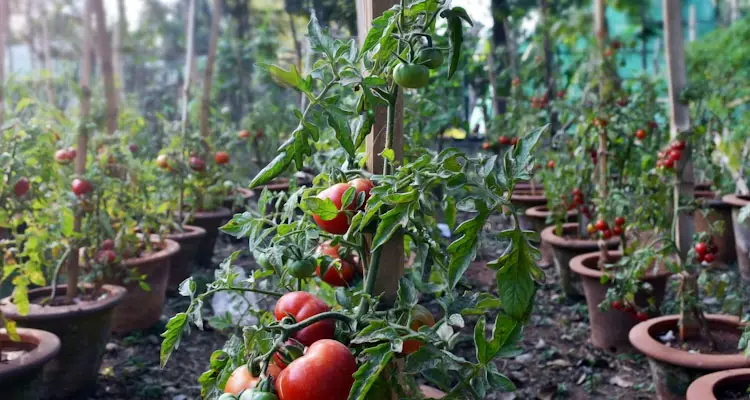
11. Use New Potting Mix If Possible
Some insects lay eggs and tend to live in the soil during their early stages of life. Therefore, it is recommended to use new bags of potting mix each season to avoid possible infestation. However, this can be pretty expensive.
Instead, I suggest you learn how to heat-treat your used potting mix using the Hot Composting Method. During this process, most insect eggs and harmful organisms are destroyed while revitalizing the potting mix in preparation for planting.
However, I must admit that mastering this skill will take some practice. Yet, the reward of having an unlimited source of high-quality, potting mix is well worth the effort.
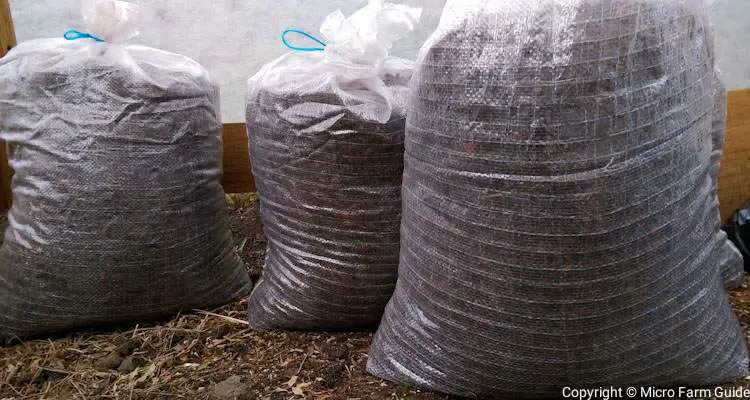
12. Use Organic Pesticides As The Last Resort
If all else fails, you can get rid of pests from your garden by using organic pesticides such as insecticidal soaps, diatomaceous earth, and neem oil. These are usually available at garden centers or online stores.
You can also make several homemade alternatives from ingredients like pepper, natural dish soap, essential oils, and wood ash.
However, if you have a large garden, you should consider making a batch of JADAM Natural Pesticides. These are typically herbal extracts combined with a soap-like solution called Jadam Wetting Agent.
Generally, most natural pesticides are as effective as their synthetic counterparts but much safer for the environment.
Despite this reassurance, please follow the instructions carefully so as not to harm beneficial insects or contaminate food or waterways.
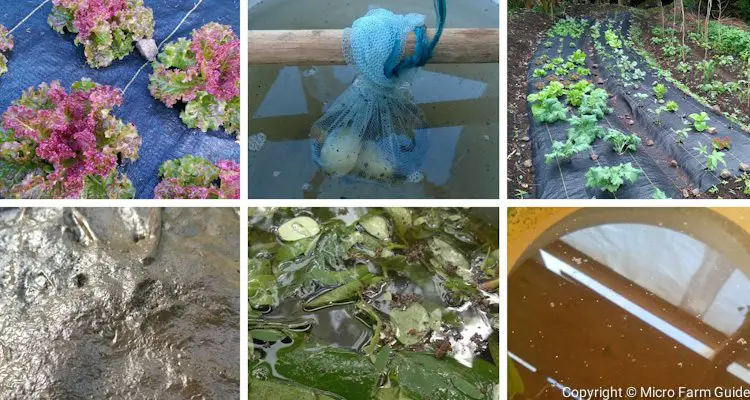
Final Thoughts
Only a tiny percentage of bugs that visit your garden are harmful to your plants. In fact, some bugs assist with pollination and even keep pests in check.
However, the pest pressure can become unbearable depending on where you live and the time of year.
As a result, the key to pest control is to learn as much as possible about your plants, the common garden pest in your area, and effective ways to get rid of specific bugs when necessary.
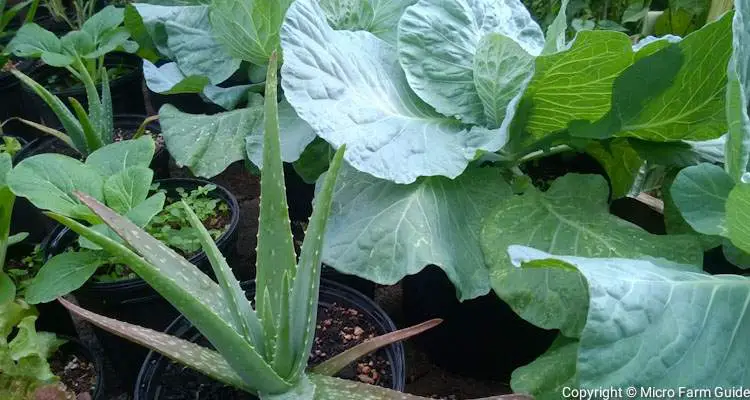
Related Questions
What Is The Best Insecticide For Container Gardens?
The best insecticide for container gardens is a mixture of neem oil, natural soap, and water. However, powders such as wood ash and diatomaceous earth are also effective natural insecticides with additional benefits to the plant.
How Do I Protect My Garden Containers?
The easiest way to protect garden containers is to place them on blocks. Also, you should consider carrying the pots inside or wrapping them with insulative materials if your expect extreme weather.
What Can I Spray On My Vegetable Garden To Keep Bugs Away?
The simplest solution to spray on vegetables is a mixture of peppermint oil and water. This helps mask the scent of the vegetables and can deter certain insects.
References
University Of Illinois. Not All Bugs Are Bad: Good Bugs In The Garden. extension.illinois.edu. Accessed April 2023
